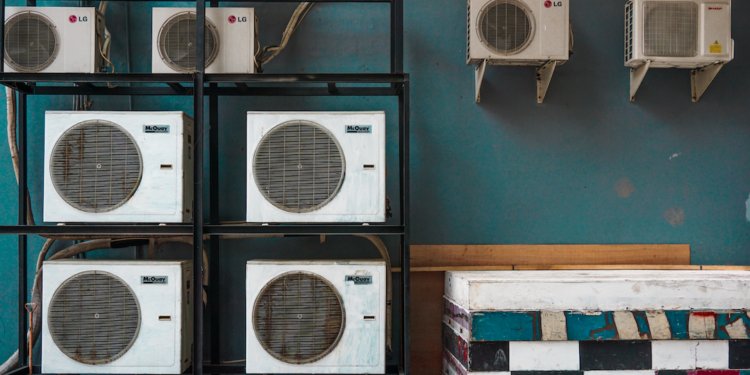In the US, 88% of homes used air conditioning in 2020 according to the Energy Information Association. This percentage has continuously increased since the technology’s creation in the early 1900s. With harsher temperatures in the years ahead, we can only assume this trend will continue, propelling the climate crisis even further.
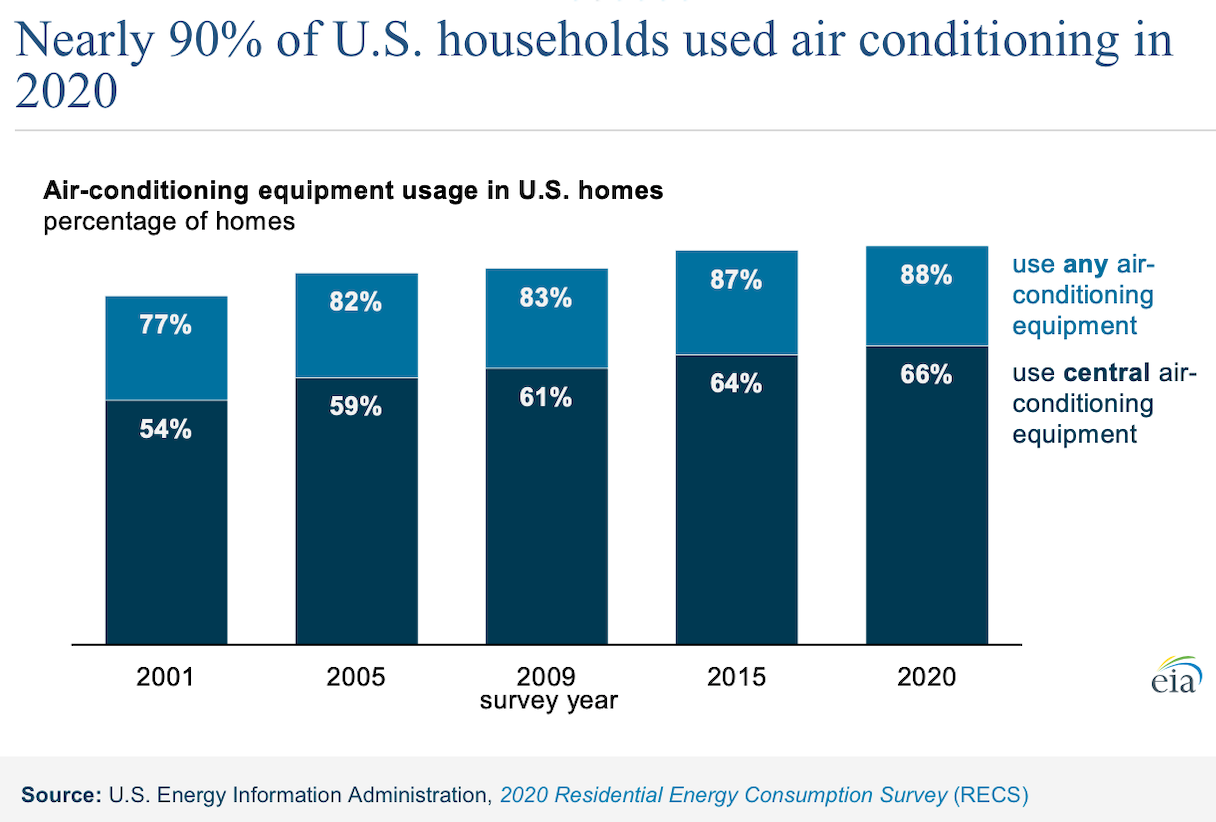
Air conditioning was impossible until the invention of Freon, a supposedly non-toxic and non-explosive chlorofluorocarbon that acted as a coolant. It took only 52 years after Freon was invented in 1928 for more than half of US homes to own air conditioning units.
Similarly, only 10% of US cars were equipped with air conditioning in 1955; 30 years later, no American cars were produced without air conditioning.
Freon initiated a cooling boom across the US, with businesses, public transportation, and schools all hopping on the trend. But chemists quickly became worried.
The vast amount of newly invented chlorofluorocarbon chemicals that were now being pumped into the atmosphere at a rate of one million metric tons per year was equivalent to the mass of 500,000 cars.

After scientists in 1974 revealed the atmospherically disruptive qualities of the chlorine molecules, concerns of depletion of the ozone layer arose. Six years later, geophysicist Joseph Farman detected an “Ozone Hole” over Antarctica which resulted in the US signing the Montreal Protocol on Substances that Deplete the Ozone Layer, halting all Freon production.
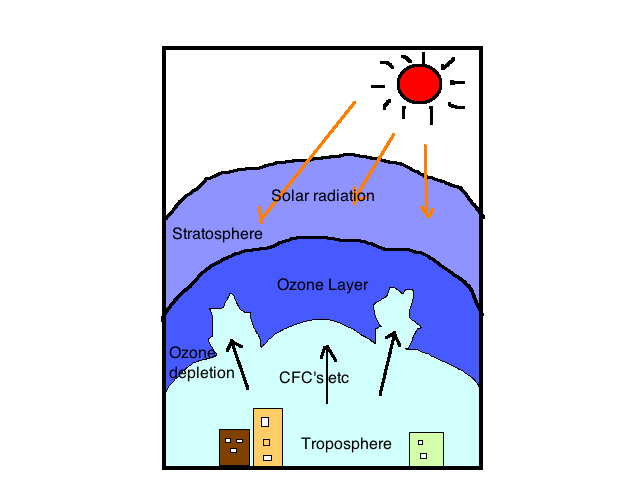
By 1997, the Montreal Protocol ended all chlorofluorocarbon production, which can be considered an eco-miracle. According to TIME Magazine, this document remains the world’s only successful environmental treaty.
However, a problem remains – the new hydrofluorocarbons that we still use today are also harmful for the planet, just in a different way.
Hydrofluorocarbons are potent greenhouse gases. They absorb radiation from the sun and trap it on Earth (so it is unable to escape into outer space). This is similar to the qualities of carbon dioxide, but hydrofluorocarbons trap heat at rates exponentially higher.
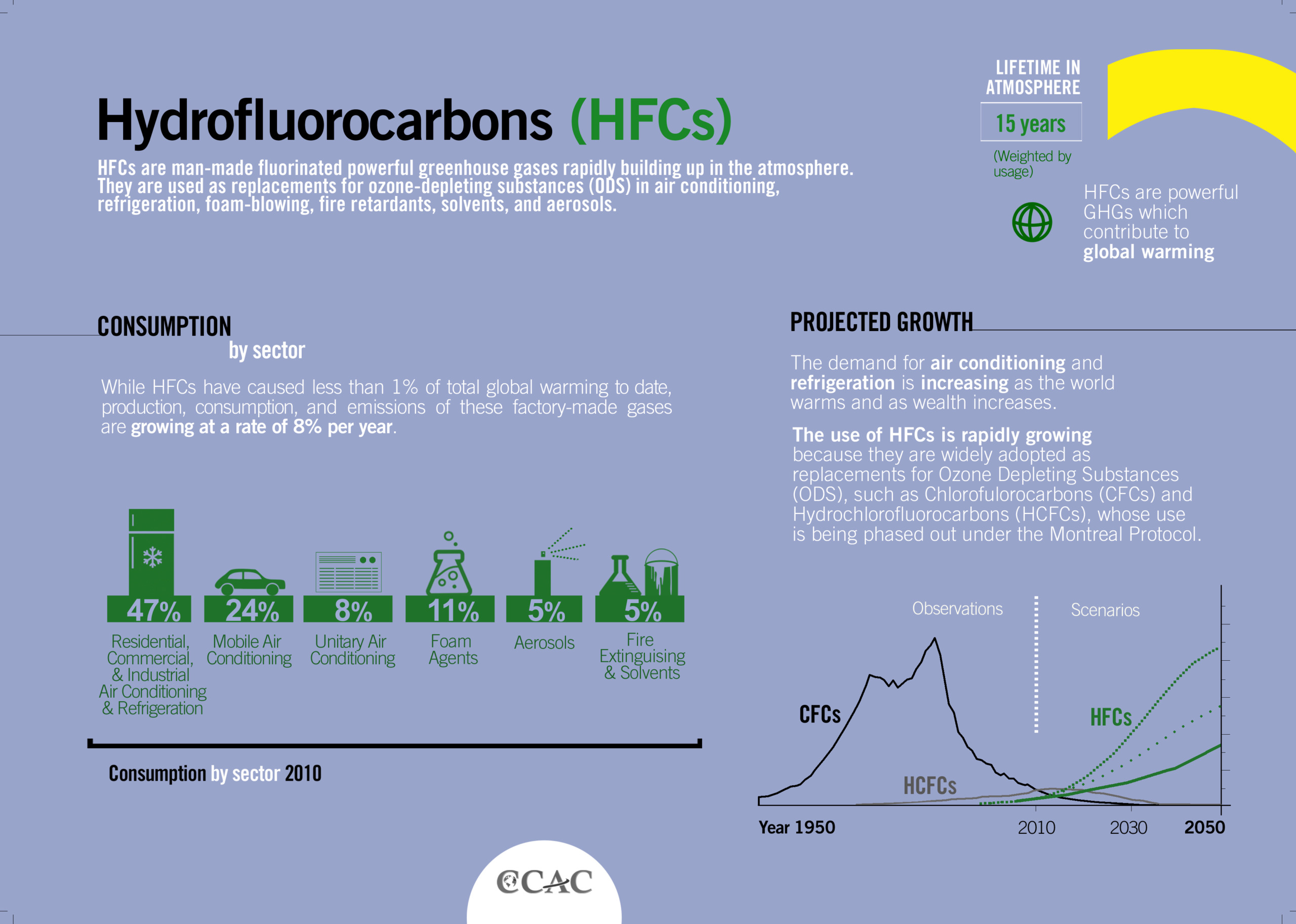
In 2020, the EPA announced they will begin phasing down hydrofluorocarbons and transitioning to next-generation technologies. In other words, they will attempt to find new chemicals instead of addressing the problem at hand: our dire need to cool the planet.
Related Articles: Latest UN Climate Report: A Call for Action | Today, In July, We Have Used Up All the Earth’s Resources for 2022
Even if single-unit air conditioners emit the least, and hydrofluorocarbons are much less populated than other greenhouse gases in our atmosphere, we must nonetheless be mindful of our personal usage. On cooler nights, try only using a fan or opening windows for a breeze instead of turning on your AC.
When it’s truly necessary to cool your room or home, reassess the temperature of the spaces every fifteen to thirty minutes. Turning off your AC for a few hours instead of leaving the unit blasting all night is a small but important step you can take to help improve this exceedingly vast problem.
Many air conditioners have an Eco setting that automatically shuts the unit off after a room reaches the desired temperature. If you use this setting, your AC will be more effective and save energy. In turn, you’ll use less electricity and save money.
The EPA tracks Global Greenhouse Gas Emissions Data and updates these statistics regularly. As of 2014, electricity and heat production make up a quarter of all gas emissions. You can stay informed on all of the latest climate information in the U.S. with their website.
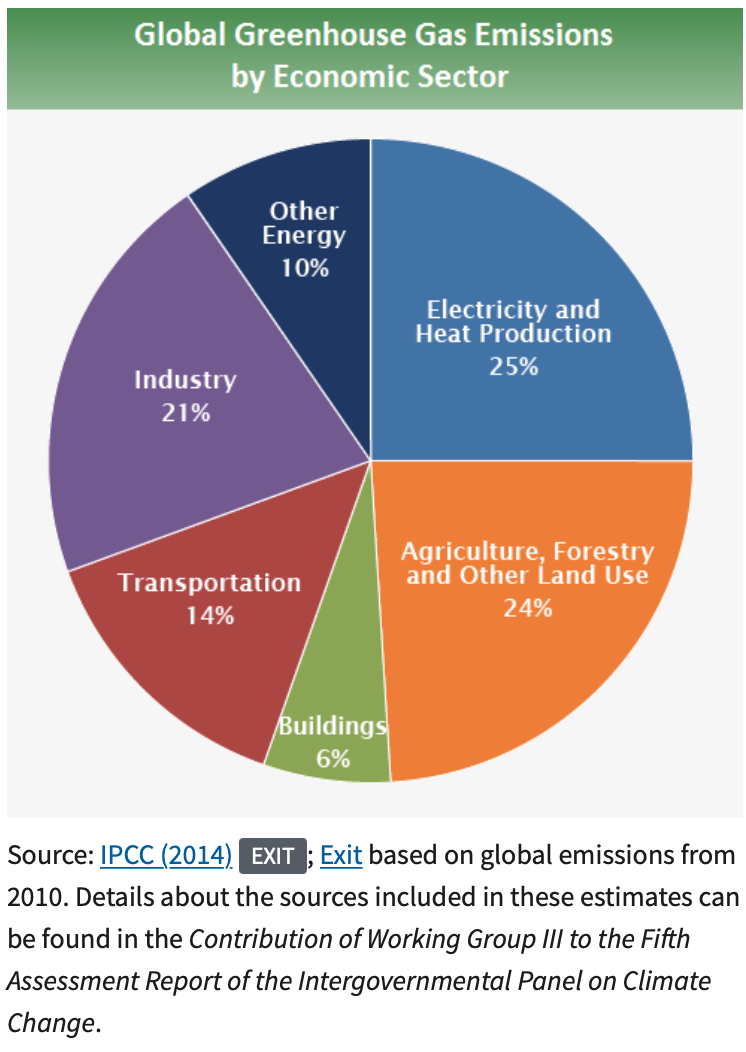
We may not like what we read, but we have to be aware of the environmental effects our choices can trigger. Educating ourselves is the very least we could do to become more conscientious of our planet’s predicament.
Editor’s Note: The opinions expressed here by the authors are their own, not those of Impakter.com — In the Featured Photo: AC units in Jakarta, Indonesia. Featured Photo Credit: Dewi Karuniasih.


